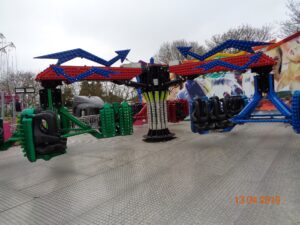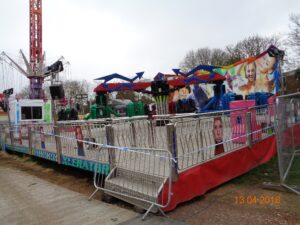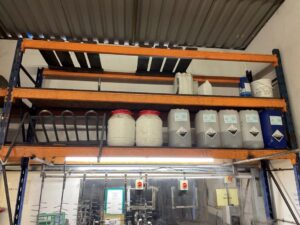Double glazing company boss avoids jail after worker dies
The director of a Croydon-based double glazing company has avoided an immediate spell behind bars following the death a man described as “an anchor” by his devastated wife.
Ayman Noor was given a suspended prison sentence and his company – My Best Group Limited – was fined, following the death of 40-year-old Kashif Rehman on 12 November 2021.
Mr Rehman suffered a cardiac arrest when a number of toughened glass panels fell on him as he was trying to retrieve one from a stack leaning against a wall. The incident happened at the firm’s premises on Bensham Grove in Thornton Heath. He died three days later in hospital.
His wife Naila said her husband was ‘humble, kind and caring’ as she spoke about the impact of his death on their young family.
“I didn’t just lose my husband, I lost my anchor, my friend and my biggest support and motivator, she said.
“Kashif was humble, helpful, kind, caring, intelligent and God fearing and an amazing role model to three young sons. We once had a beautiful family of five, happy and content with sounds of laughter and positive moments. Now our home is filled with sadness, hollowness, emptiness and silence.
“Before switching off the life support machine, I had to give the news to my two, four and six-year-old sons that their daddy can’t come home. Those painful cries still ring in my ears and I have flashbacks to their painful tears. I always see my boys suffering even in the happiest celebrations, I see the sadness in their eyes and longingness for their dad.”
An investigation by the Health and Safety Executive (HSE) found that Mr Rehman’s death could have been prevented had the glass panes, weighing up to 10kg each, been restrained or stored in a suitable racking system to hold them in place.
Naila added: “I still have sleepless nights due to the anxiety and flashbacks from the day. I get vivid flashbacks from the day it happened, the drive to the hospital and the funeral. I also feel uneasy on Fridays as this is when the incident happened, where I just relive the trauma.”
The HSE investigation also found My Best Group Limited, had failed to assess the risks associated with storing and handling the panes of glass, implement a safe system of work and provide adequate training and supervision. Its director, Mr Noor, was aware of the failings but failed to implement the measures required to ensure the safety of his employees and members of the public that had access to the glass storage shed.
At Southwark Crown Court on 8 May 2024, My Best Group Limited, which is now in liquidation pleaded guilty to breaching Sections 2(1) and 3(1) of the Health and Safety at Work etc. Act 1974. The company would have been fined £120,000 but due to its liquidation status this was reduced to a nominal fine of £2,200. Director Ayman Noor was given 20 weeks and 14 weeks custodial sentences that will run concurrently, but they were suspended for 12 months. He will also pay costs of £9,294 for breaching section 37 of the same Act.
HSE inspector Marcus Pope said: “This is yet another tragic and avoidable workplace incident that should never have happened.
“Had My Best Group Limited implemented a suitable safe system of work for storing and handling glass Mr Rehman would still be here today. These tragic circumstances should demonstrate to the glass industry the importance of safe storage and handling of glass.”
This prosecution was brought by HSE enforcement lawyer Rebecca Schwartz.
Notes to Editors:
- The Health and Safety Executive (HSE) is Britain’s national regulator for workplace health and safety. We prevent work-related death, injury and ill health through regulatory actions that range from influencing behaviours across whole industry sectors through to targeted interventions on individual businesses. These activities are supported by globally recognised scientific expertise.
- More information about the legislation referred to in this case is available.
- Further details on the latest HSE news releases is available.






